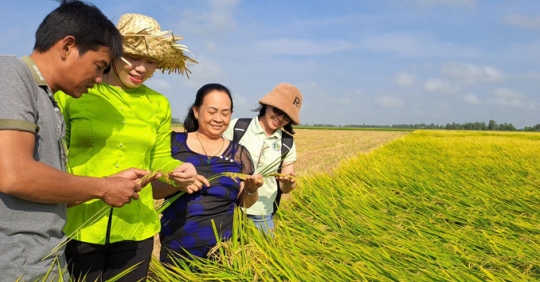Eight seed production and trading companies in the north have just submitted an application to the Minister of Agriculture and Rural Development and the Ministry of Crop Production, proposing to examine a number of issues related to difficulties and obstacles in their production and business and to eliminate activities related to the implementation of the provisions of the Cultivation Act.
These 8 companies include: Bac Ninh Seed Joint Stock Company; Hoang Gia Green Agriculture Company Limited; Hong Ha Seeds Company Limited; Bac Giang Seed Joint Stock Company; Thien Long General Agricultural Service Company Limited; Nam Duong Company Limited; Nam Dinh Seed Joint Stock Company and Cuong Tan Co., Ltd.
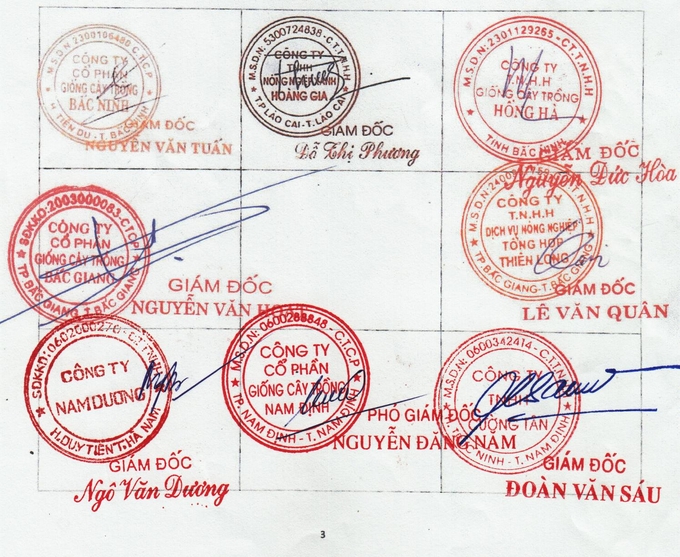
8 companies jointly submitted an application to the Minister of Agriculture and Rural Development Le Minh Hoan and the Ministry of Crop Production.
The content of the application is as follows:
“We represent plant seed companies in the northern provinces. For many months, we have always been in a state of fear and uncertainty because the summer-autumn harvest and harvest is approaching, but the implementation of the cultivation law has been implemented. still full of contradictions with intellectual property law.
The content we deal with here mainly revolves around the inadequacies and contradictions of the Cultivation Act with other laws and guidance documents.
Although there have been many conferences between the management agency and Vietnam Seed Trade Association, production and trading companies, breeders, etc., the reality of seed production and business is still “muddled” and we do not know how to deal with it.
For example, the extension of the decision on the recognition of the circulation of rice varieties and maize varieties not protected in the list of varieties allowed for production and trade includes the following varieties: Xi21, Xi23, CR203, Q5, Khang Dan, Huong Huong , Bac Thom 7, Nep 97, Level 32, DV-108…; Hybrid rice varieties Nhi uu 838, Nhi uu 63, San uu…, corn varieties LVN-10…
First of all, it is necessary to confirm that all the above varieties are under state resources because they have been researched, selected and imported by the institutes of the Ministry of Agriculture and Rural Development, the Center for Testing and Testing of varieties and products, national plant products, state-owned companies.
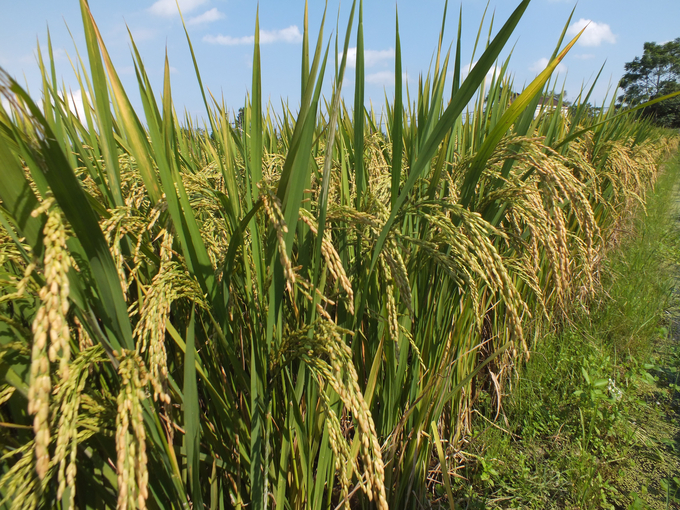
Many companies have recently commented on shortcomings in the implementation of the Cultivation Act.
These varieties have been put into production and trade for a long time, the shortest being 20 years, and have been recommended for many years by a large number of seed companies in most of the Northern Provinces, Ministry, North Central and Central Highlands . Currently, these are still the most important production varieties and can be described as socialized varieties.
According to the Cultivation Act, all of these unprotected, associated varieties must extend the approval notice in order to be able to continue production and operation. So the problem here is:
The first: For how many varieties was the traffic approval notice extended until April 22, 2023? At present, varieties that have not been granted an extension of the decision on the recognition of marketing under the Cultivation Act may not be produced and traded. These grades are still in stock, how should they be handled during production? (For these varieties, the companies had to organize a selection of lines from previous crops). And the farmers in the regions have a great need for seed for production? A number of similar companies lost their jobs, had to be closed, the workforce knew where to go and what to do?
Are these varieties allowed to extend the traffic approval decision and which organizations or individuals are signing up for traffic expansion? And here there are many questions like: are there any breeders, the selection board has yet to renew or approve the renewal or not, and will they register to renew the circulation notice? There are varieties, companies and individuals compete for registration, to expand circulation …
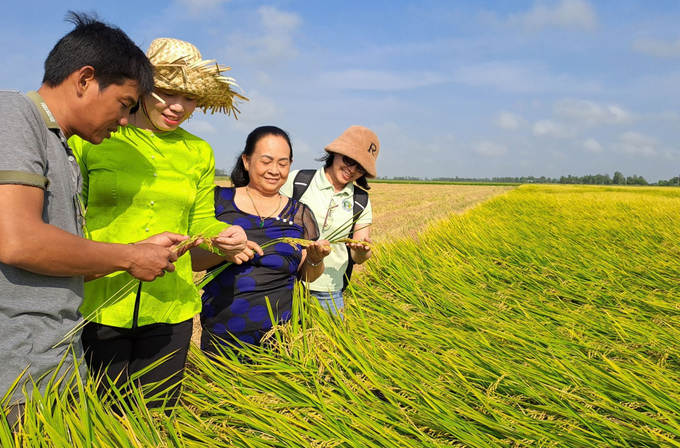
Companies said that the implementation of the Law on Cultivation encountered problems with the provisions of the Law on Intellectual Property.
Monday: Varieties that have been extended by an organization or individual, including both protected and non-protected varieties within the meaning of Section 1, Article 31 of the Cultivation Act, only they have the right (production and business rights) or authorize other organizations and individuals to propagate . This is in stark contrast to the varieties protected by intellectual property law. Thus non-protected varieties have the same rights as protected varieties, so what does the protected variety of intellectual property law mean?
Besides real organizations and individuals, there are also organizations and individuals who seek registration for the extension of the propagation decision so that they have the exclusive right to produce and act like a protected variety. Other companies that want to do business every year must apply for a permit. But when companies ask for permission, they make it difficult for them by making a series of requests that can be described as very unreasonable, including many requests that are not under their authority and offer an unacceptable authorized price.
Thus, the state’s socialized seed resources were appropriated by a few entities (who only spent a few tens of millions of dongs as a control test to obtain a circulation decision extension) to have the same monopoly as the licensed variety in order to raise prices and illicit profits to achieve.
This contradicts the provisions on the protection of races in intellectual property law. Loss of the right to freedom of production and business, loss of jobs for many companies and farmers, great damage to agricultural production.
We admire the understanding, purity and model of the Institute of Food Crops and Food Plants, which issued the official letter n. 480 of December 16, 2022, in which it responds to the Nep 97 variety, not classified as a Community variety for protection is registered. Within the framework of the partnership, the companies operate freely in accordance with the statutory provisions.
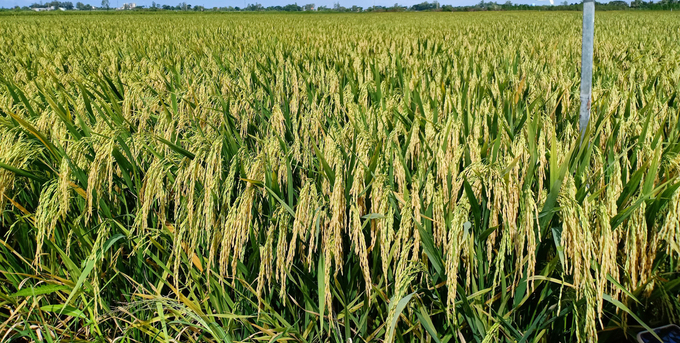
Companies suggested that they would soon have solutions to eliminate and facilitate production and business activities.
In the face of the above concerns and uncertainties, our seed production and business enterprises are falling into a state where they can no longer conduct business, have no jobs and farmers cannot produce seeds. We would like to recommend the Minister to review, remove and suggest some of the following content:
before eyes:
– Removed so that companies like us can continue to produce and trade the above socialized varieties this season and this year without having to seek permission from any organization or individual and leave the authorities such as inspection, testing; Inspection, market management, economic police do not make it difficult for us in the production and business process.
– It is planned to pay one-time expenses for organizations and individuals who have extended the decision on recognition of circulation by agricultural advisory funds or companies contributing through the Vietnam Seed Trade Association.
Long-term:
– Annulment of the entire extension of the decision on marketing recognition for the main plant variety on the list of varieties allowed for production and trade, non-protected varieties or varieties whose period of protection has expired (i.e. similar to the end of protection period to be “released”) .
– Extension of the decision on marketing recognition only for protected varieties that are still in the protection period.
In doing so, the seed does not have to be discarded, but also keeps all the good varieties that have been socialized in the list of varieties allowed for production and trade, allowing organizations and individuals to produce and trade freely according to the law. Farmers have good seeds that they can produce when needed (there are varieties that farmers do not produce for a while, then return to production a few years later). Farmers discard ineffective varieties that do not meet the requirements. At the same time, it also meets the requirements of intellectual property law and does not conflict with the Cultivation Act.

